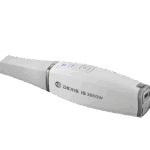The dissertation of a Swedish dental specialist has found that premature children born before week 33 may need more orthodontic care than children born at full-term. Liselott Paulsson from the Faculty of Odontology at MalmÖ University, Sweden, also found that premature children have more complicated deviations in their bite.
“This is a new group of children who need to be given more attention in dental care,” said Paulsson.
A total of 114 children were divided into three groups for Paulsson’s study: children born before week 29, children born between week 30 and 32, and full-term children born in week 40. The participants were examined when they were between 8 and 10 years of age. Results showed that 52% of the premature children needed to be treated for bite deviations, compared with 37% for the full-term children.
Pre-term infants are often intubated to help with their respiration during the first few weeks of life. Previous studies indicated that the children who are intubated after birth run a greater risk of developing bite deviations due to the plastic tube used during the process, particularly those children intubated through the their mouth. However, Paulsson noted that nasal intubation is used for the most part at Swedish hospitals, and her studies still showed that these children have more malocclusions than full-term children.
Paulsson’s research also showed that the premature children weighed less, had smaller head circumferences, and had smaller upper jaws.
“[This] shows that they have not caught up in their growth. It may be these differences that underlie the fact that they have more bite deviations, but more research is needed before we can know this for certain,” said Paulsson, who hopes to follow up with the participants between the ages of 16 and 17.







